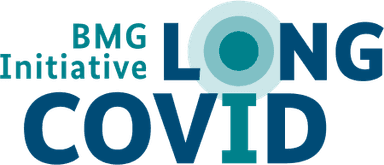Note: The following text is a guest article. They reflect the personal views of the author. The article is not an expression of opinion by the Federal Ministry of Health.
Guest article: Ph.D. Akiko Iwasaki
The 4 root causes of Long COVID
Long COVID is estimated to affect 65 million people worldwide. It is a heterogeneous disease that is likely caused by several possible root causes (sources of the problem) that are not mutually exclusive. A guest contribution by Akiko Iwasaki discusses the possible 4 main causes of Long COVID.
Published on: 07/12/2023

© Ph.D. Akiko Iwasaki / Robert Lisak
We can think of these possible root causes being triggered at the same time in a person or triggered sequentially. Some long COVID patients may suffer from one of these root causes, while others might have two or three or all. In order to provide effective treatment, we need to understand these underlying causes and test targeted therapies in randomized placebo-controlled clinical trials.
We propose and investigate 4 root causes of long COVID.
- Persistent viral infection by SARS-CoV-2. There are a large number of reports showing the presence of viral antigen and RNA in various tissues months post-infection in people, as well as the presence of circulating spike protein. Based on this hypothesis, we and others are now doing randomized placebo-controlled clinical trials of long COVID patients with the antiviral agent Paxlovid. The Yale PaxLC trial hopes to understand who responds positively to Paxlovid and identify biomarkers of success so that people with such biomarkers can be treated in the future with Paxlovid.
- Autoimmunity. Viral infections are known to trigger various bystander and cross-reactive autoreactive lymphocytes, leading to autoimmune diseases. We examined the presence of autoantibodies to extracellular antigens in people with long COVID but did not find significant differences compared to convalescent controls. However, autoreactive T cells and antibodies to intracellular autoantigens can still be at play.
- Latent virus reactivation. We and others see evidence for a recent reactivation of herpesviruses including Epstein-Barr virus and varicella-zoster virus. These reactivated viruses themselves may be causing the symptoms of long COVID. We are also extending the analysis to see if endogenous retroviruses may also be aberrantly expressed and induce pathology.
- Chronic tissue dysfunction. We have shown that there is chronic damage in the brain of mice that had mild respiratory COVID seven weeks prior. In this study, inflammatory immune factors (cytokines and chemokines) accounted for some of the brain phenotypes. It is possible that inflammatory triggers caused by COVID can incite chronic dysfunction in a variety of tissues.
In addition to these root causes, there are many downstream physiological changes that happen, including micro clot formation, platelet activation, reduction in tissue utilization of oxygen, mitochondrial dysfunction, and lower levels of cortisol. In our study, lower levels of cortisol in the blood were the most distinguishing feature of people with long COVID. Such hormonal imbalance can explain some of the symptoms reported.
COVID is not alone in causing chronic diseases after the acute phase. There are many other viral and non-viral pathogens that can also lead to post-acute infection syndrome (PAIS). Studying the disease pathogenesis of long COVID has the promise of providing insights into the mechanism of other PAIS, including myalgic encephalomyelitis/chronic fatigue syndrome (ME/CFS).
Vita
Akiko Iwasaki, Ph.D. is a Sterling Professor of Immunobiology at the Yale University School of Medicine. Her research focuses on the mechanisms of immune defense against viruses at mucosal surfaces, which are a major site of entry for infectious agents. Professor Iwasaki received her Ph.D. in Immunology from the University of Toronto and completed her postdoctoral training with the National Institutes of Health before joining Yale’s faculty in 2000. She has received many awards and honors including the 2023 Else Kröner Fresenius Prize for Medical Research and has been a Howard Hughes Medical Institute Investigator since 2014. She was elected to the National Academy of Sciences in 2018, to the National Academy of Medicine in 2019 and to the American Academy of Arts and Sciences in 2021. Professor Iwasaki has been a leading scientific voice during the COVID-19 pandemic and is also well known for her Twitter advocacy on women and underrepresented minorities in the science and medicine fields and has been named to the 2023 STATUS list of the ultimate list of leaders in life sciences. Dr. Iwasaki is the director of the Center for Infection and Immunity and is at the forefront of several long COVID investigations including the Mount-Sinai Yale Long COVID study, Yale LISTEN study, and Yale Paxlovid trial.
